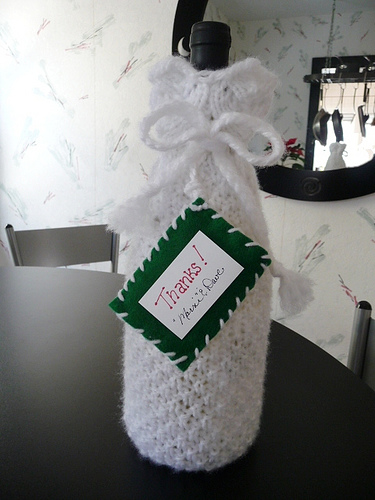Culinary/social landmines: Bringing food to a party

Last night I watched a rerun of an old Seinfeld episode where Jerry, Elaine, Kramer and George are all heading out to a party. Elaine insists that they buy a bottle of wine and some kind of cake to bring to the party. George laments this idea as needlessly expensive and ridiculous. (Left to his own devices, George would bring a two liter bottle of Pepsi and a package of Ring Dings.)
![]() Seinfeld: Why Pepsi is better than wine
Seinfeld: Why Pepsi is better than wine
I think most of us side with Elaine on this one, while secretly feeling like George. What George is missing in this social equation, though, is the concept of reciprocity. The idea of the "host gift" (more commonly called "hostess gift" but I feel this term is needlessly gender-stereotypical) is to partially repay your host for the trouble and expense of holding the party. You can't just come out and say that, though, even though it would be easiest all around if you just gave the host a $20 bill.
The classic gift is to bring a bottle of wine. But which wine? Do your hosts even drink wine? Or are they wine connoisseurs who already have more better wine in their basement than you could hope to match with a gift? Wine is the traditional host gift, but it's also a social minefield.
Elaine decides that a chocolate babka is just the thing. When the last one is sold out, she reluctantly chooses a cinnamon one as second-best. Everyone knows this feeling of gift-giving compromise and failure.
And what if your hosts are gluten-intolerant, or on a low-carb diet? A babka would be the worst thing you could bring. Do they have children with food allergies? Does your host detest raisins? You don't know.
It's enough to make a person resort to buying a two liter of Pepsi and a pack of Ring Dings, and pretending that it's "ironic."
Image courtesy Flickr/Marni-

1 comments